IORT surgery: Eliminate cancer, spare healthy tissue
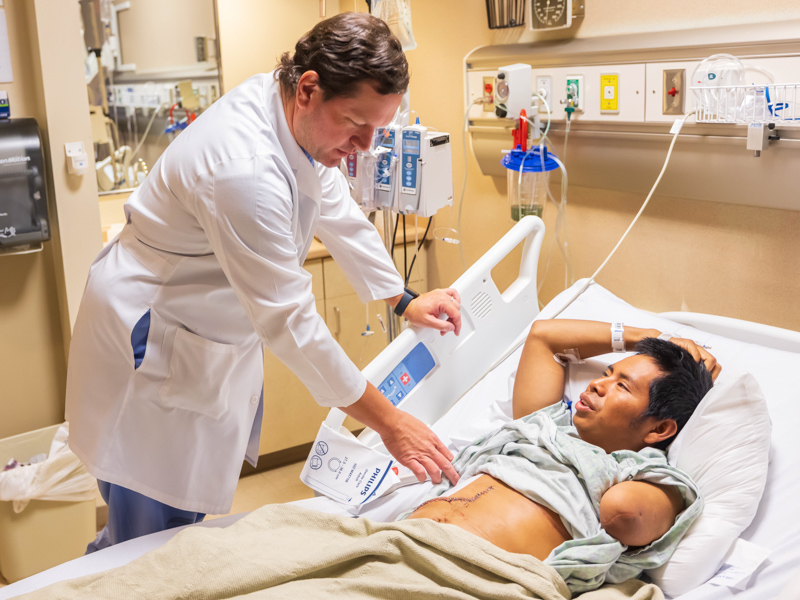
Geremias Lux Pu has battled cancer over and over, but that hasn’t diminished his will to live and resolve to kick the disease as many times as it takes.
“I’ve got to enjoy this life. It’s like a unicorn – it’s just one life we have to live,” said Lux Pu, a native of Guatemala who today works as a heavy equipment operator in Moss Point.
The University of Mississippi Medical Center patient’s specific cancer made him a top candidate for a procedure that eliminates tumors while sparing precious organs, arteries and nerves perilously close to the cancerous growths. It’s called intraoperative radiation therapy, or IORT, an intensive radiation treatment administered during surgery.
IORT allows direct radiation during surgery to the target area without disturbing healthy surrounding tissues. Dr. Shannon Orr, UMMC associate professor of surgery, and Dr. Vijay Vijayakumar, professor and chair of the Department of Radiation Oncology, performed Lux Pu’s abdominal IORT procedure on Oct. 20. They’re the only specialists in the state performing the abdominal IORT.
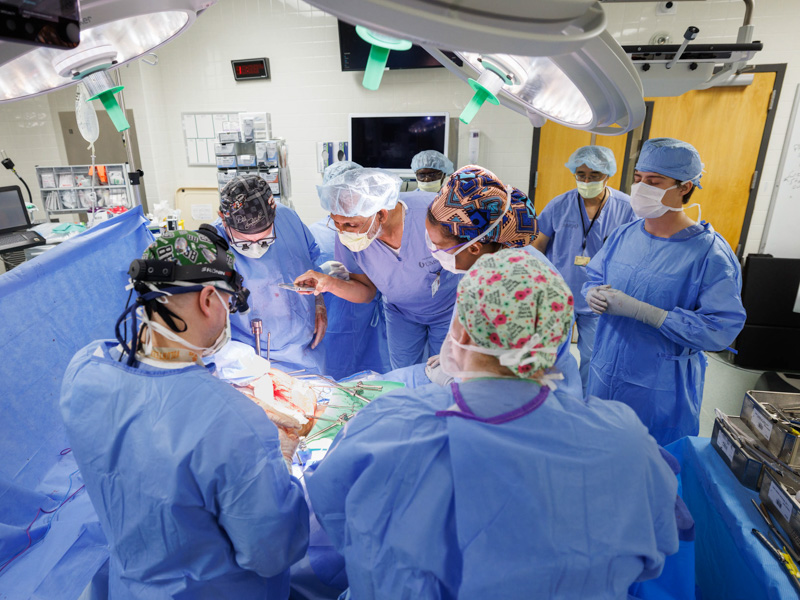
Dr. Scott Berry, assistant professor of surgery and a member of the Cancer Center and Research Institute’s interdisciplinary breast cancer team, performs the Medical Center’s breast cancer IORT procedures in conjunction with Vijayakumar. Orr leads the gastrointestinal cancer care team at the CCRI.
Lux Pu is one of the first two UMMC patients to undergo abdominal IORT. Berry and Vijayakumar have performed nine IORT early-stage breast cancer surgeries.
In Lux Pu’s case, tumors reoccurred in the site where Orr previously removed his two cancerous adrenal glands, one atop each kidney and abutting the inferior vena cava. Before that surgery, Lux Pu had several others: In 2017, his UMMC medical team was forced to amputate his left arm because of multiple tumors, with Dr. Jennifer Barr, assistant professor of orthopaedic surgery and a bone cancer specialist, performing the surgery.
Then in 2019, he had surgery for lung cancer metastasis performed by Dr. Pierre de Delva, professor and director of thoracic oncology and division chief of general thoracic surgery.
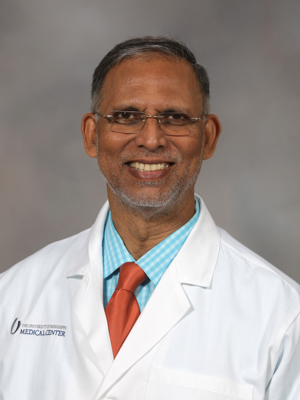
“This is a very typical example of how we take care of patients at UMMC – multiple experts helping a patient to live longer,” Vijayakumar said.
Orr sent Lux Pu to Vijayakumar after his most recent cancer resurfaced. “Even though a surgeon can take out what they see, they might leave behind some microscopic disease. It can come back in the same place,” Vijayakumar said.
Cutting out the tumors in addition to their margins – the tumors’ edges or borders – is necessary to be as sure as possible that even the most obscure cancerous cells are removed. During surgery, Lux Pu’s cancer was found to be “in a very tricky part of the body, near his right kidney and to the right of his spinal cord,” Vijayakumar said. “Dr. Orr and I worked together to treat exactly what we needed to treat.”
Orr made an incision in Lux Pu’s abdomen to remove the tumor, and Vijayakumar followed by using a probe to apply radiation along the margins. IORT not only allows higher effective doses of radiation compared with conventional radiation therapy, but it allows the surgical team to temporarily move nearby organs and vessels away if needed to shield them from radiation exposure.
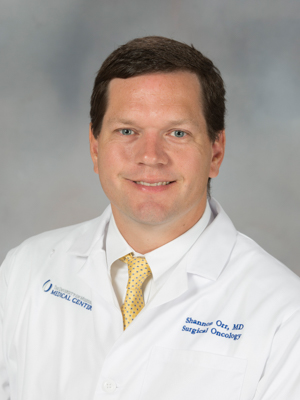
“We don’t want to take any more tissue than we have to,” Orr said. “This is a way that we can treat the area in case there is any microscopic disease left.”
Breast cancer IORT, performed only on women with early-stage disease, is a desirable surgery for many reasons, but topmost is access to care for women with limited resources, Berry said.
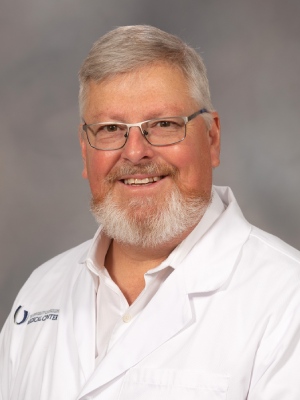
“If a woman has the cancer removed but wants to save her breast, she has to have radiation five days a week for anywhere from two to five weeks,” Berry said. “Many don’t have the transportation for that. Some even have trouble making it to a doctor’s appointment. For them to come every day for up to a month and a half is impossible.
“Women say they’ll take a mastectomy because there’s no way they can get the radiation,” he said. “But IORT is a one-time treatment given at the time of their operation, and they’re done. For women without means, it’s social justice and access to state-of-the-art health care.
“It’s a much bigger issue for most of our patient population, and that’s why it’s a game changer for them and us.”
Pre- and post-operative IORT care at the Medical Center extends far beyond the actual surgeries led by Orr, Berry and Vijayakumar. Patients are cared for by a full multidisciplinary team taking in dozens of health professionals and specialists in Surgical Oncology, Orthopaedic Oncology, Radiation Oncology, Anesthesiology, Medical Oncology, Endocrinology and Thoracic Surgery. Add to that important players that include medical physicists, OR and radionic nurses, breast cancer navigators and nurse practitioners.
Despite having staples in his abdomen, Lux Pu was well enough to go home a few days after surgery.
He has an infectious smile and a can-do attitude. He wants to get married and have a couple of kids.
“When they explained the IORT to me, they said it was a great surgery to get the tumors,” said Lux Pu, one of seven children, all but one living and working in Mississippi or Louisiana along with their father. Their mother and a sister remain in Guatemala.
“I said, ‘Let’s do it. Let’s save my life,’” Lux Pu said. “It’s a great team. I feel like they’re my family.
“I hope this is my last surgery. I’m feeling good. That’s my petition every day: Renew my life.”


